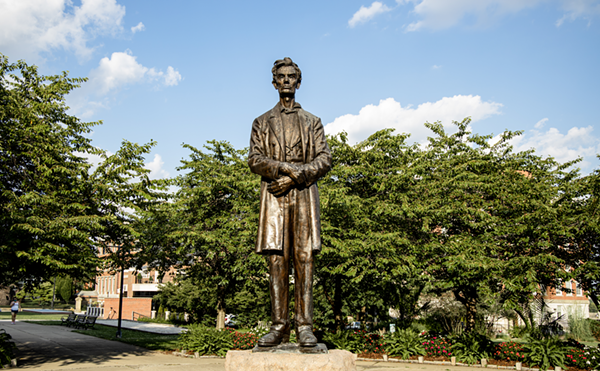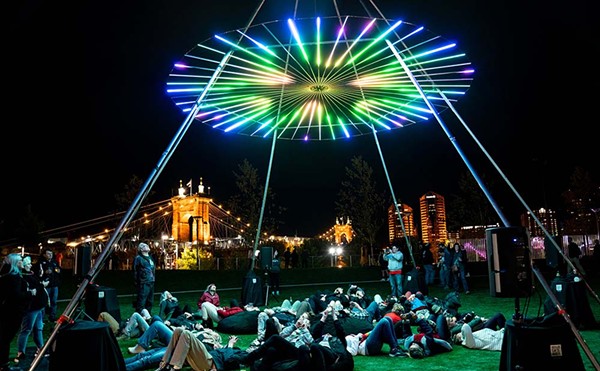I once asked Bill Maher during an interview what he knew about Cincinnati.
“Nothing,” he said.
“Nothing?” I replied.
“Well, I loved the Big Red Machine.”
Yes, for many Cincinnati remains best known as the city that spawned one of the greatest baseball teams the world has ever seen. And now, more than three decades after its heyday, Joe Posnanski’s new book The Machine: A Hot Team, a Legendary Season and a Heart-Stopping World Series: The Story of the 1975 Cincinnati Reds revisits just what made “The Machine” so unique.
CityBeat recently spoke with Posnanski, a gifted sports columnist and author who currently writes for Sports Illustrated, to discuss his fascinating, often funny book.
CityBeat: Why write this book now?
Joe Posnanksi: I was 8 years old in 1975, and that’s really when I came to love baseball. I really wanted to write about that time period. I grew up in Cleveland, and I didn’t think anybody was going to read a book about the ’75 Cleveland Indians (laughs).
The Reds were obviously the dominant team of the time. It was a team filled with all these great players, a team that I’ve always placed in my mind as one of the greatest teams ever. And the more I kind of explored it, the more I thought it would be fun to write about because not only could I write about all these great characters on the Reds, not only could I write about this great season, but I could write about baseball when I was a kid. That was the driving force.
CB: One of the interesting aspects of the book is your attention to the culture at large at the time. Why were you interested in digging into that?
JP: I was every bit as interested in writing about the background of 1975 as I was that team. That was the summer Jaws came out. The Vietnam War just ended, and Watergate was still kind of lingering in everybody’s minds. Muhammad Ali fought (Joe) Frazier that year. The economy was in the tank. It was a really troubled time. So I wanted to put it in some sort of context.
One of the things that interested me about that Reds team is that they — through Sparky (Anderson) and Bob Howsam, the general manager — basically cast themselves as the clean-cut Americans at a time when, coming out the ’60s and the early ’70s, the Oakland A’s were this hippie team that had the long hair and everything. Well, the Reds basically bought into this notion of “Hey, we’re the ones with the short hair, we’re the ones with no facial hair, we’re the ones who wear their uniforms exactly the same way. We’re going to be this corporate team that people in Cincinnati can fall in love with.” And it worked. They were drawing more than anybody in that time period.
I really enjoyed looking back at some of these events and trying to put it all into some sort of perspective and hopefully throw in a little nostalgia for people like me who remember that time.
CB: The book makes it pretty clear that Pete Rose was probably the most important player on the team both on the field and off. What made him so unique?
JP: I wouldn’t disagree with that. I think Joe Morgan was the best player on that team. But Pete is a big reason why Joe Morgan got to be Joe Morgan. Morgan would be the first one to tell you that, and he did tell me that several times.
Living there, you know how people in Cincinnati feel about Pete Rose. Nationally, I think it’s different: People have come to think of Pete Rose as this pathetic figure. I think in a lot of ways the Pete Rose of 1975 or ’73 is forgotten. He was the most driven player in the world. Nothing stood in his way when it came to baseball. It was absolutely everything he thought about and lived.
I still think one of the most amazing statistics for me about that team was that Pete Rose played every single game despite the Reds winning the division by 20 games. They begged him to take a day off, and he wouldn’t. That’s how much it meant to him. I think his intensity was the driving force behind that team in ’75.
JOE POSNANSKI discusses and signs The Machine at 1 p.m. Sunday at Joseph-Beth Booksellers. Get event and venue details here.





